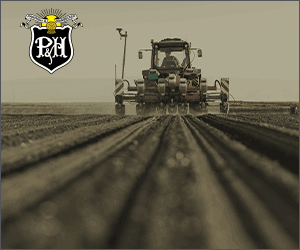Business side: A great farm employer
CONVERSATIONS WITH BUSINESS EXPERTS
(J.M.) WHAT MAKES A GOOD FARM EMPLOYER?

(H.W.) It doesn’t matter what type of business you are hiring employees for, a good employer provides clarity. On the farm, I recommend employers focus on clarity of goals, roles, and expectations. Providing clarity to an employee is a crucial step in employee onboarding and orientation because it communicates the relationships between the business and its team players right from the start.
Clarity of goals is important to determine the direction of the business and as such, the direction of the team. For the employee, it’s an opportunity to see how the goals of the employer and the business align with their personal and professional goals towards achieving a sense of fulfillment and satisfaction in their work. This will help not only with employee retention and loyalty, but can also help attract new employees when it comes time for recruitment.
Clarity of roles seems like an obvious part of the hiring process, but it’s more than just a job description. Clarifying an employee’s role is an opportunity for the employee to assess where they fit within the workplace and the relationship between team members. Outlining things like who are the key players, who is in charge of what and what is the reporting process will help establish reporting functions, available employee support, accountability, responsibilities, and conflict resolution. It will also help ensure the employer and employee are the right fit for one another. Clarity of roles also outlines the potential for the employee’s career development, again, relating back to their personal and professional goals.
Clarity of expectations of both the employer and employee is important to establish, monitor, and evaluate performance and can relate to compensation and disciplinary action. A misunderstanding of expectations can often be misinterpreted as either underperforming or overstepping, which can lead to conflict and issues with employee retention.
Establishing clarity in any workplace, including multigenerational farms and relationships between generations of farmers is especially important. A 2016 Multigenerational Farm Study conducted by Purdue University reports that the lowest level of satisfaction by the younger generation working on the farm is caused by a lack of clarity when it comes to goal alignment and roles. This lack of clarity relates to conflict resolution, which is also linked to dissatisfaction and can contribute to challenges when it comes to farm transfer and succession.
WHAT ARE EMPLOYEES LOOKING FOR IN A FARM EMPLOYER?
Relationships are important in any employment situation. Overall, I think employees are looking for respect. My suggestion to employers is to approach relationships with a firm and fair approach, especially when managing the next generation of farm employees or family members.
Transparency is also important. And so is the opportunity to make mistakes and contribute meaningful ideas and solutions. Setting clear expectations is important to enable these to happen in any employment situation. Above all else, I think employees want a sense of purpose. They want to know their contributions matter and are leading to the betterment of themselves, their place of employment and community.
HOW IS THE NEXT GENERATION OF FARM EMPLOYEES DIFFERENT?
Overall, employee asks are changing as employers compete for the best talent. Employees often find themselves in a position to choose the opportunity that best fits their needs. That makes it vitally important for employers to think about and articulate how they meet those needs.
When it comes to work-life balance, things have changed. We’re seeing a greater desire for this from the younger workforce generation who want to work to live and not necessarily live to work like their parents did. In many cases, especially in agriculture, this generation observed their parents working long hours and putting work before family. The next generation is looking for a different family-work dynamic. Employers must be conscious of this when trying to attract and retain the next generation of farm employees. •



























